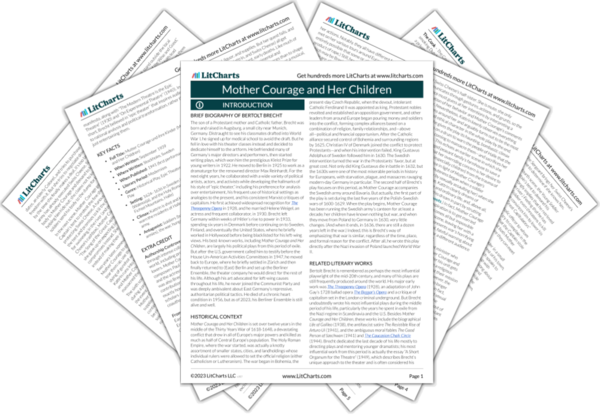With her drum, Kattrin says everything that she has been unable to say throughout the play: she gives voice to her own pain, stands up against soldiers (who have long coerced and abused her), and lodges a protest against the war’s senseless, inhuman brutality. Against all the odds, she seems to have cultivated a sense of morality and selfless, nurturing certain caregiving instincts that Mother Courage herself lost long ago (if, indeed, she ever had them). And she makes it clear that her purpose is not to save her mother but rather the children of Halle.
